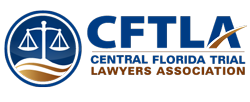How Much Does A Lawyer Cost?
When you’re fighting to bounce back from a serious injury, a team of professionals supports you throughout your recovery. Doctors, nurses, physical therapists, counselors, and pharmacists provide the services that help you heal.
When a negligent or reckless person causes your injuries, a personal injury attorney plays an important role as well.
Each professional is there when you need them. They provide valuable knowledge and services. As you’re working your way back to good health, you’ll grow to appreciate every member of your recovery team. You will also realize that your personal injury attorney is the one who’s willing to work on your behalf as long as necessary to ensure you are made whole financially.
Medical Bill Cause Sticker Shock
When you’re injured, it’s important to get the treatment you need regardless of the costs. The medical professionals who treat you can’t or won’t tell you upfront what your bill will be. If they did, you’d likely feel the financial stress as you struggle to heal. Radiologists run diagnostic tests. Doctors and surgeons perform emergency procedures and hospitals provide accommodations while you wait to recover. Nurses give bedside care, pharmacists fill your prescriptions, and therapists help you heal physically and mentally. You need these services regardless of the cost, but it often causes sticker shock when you receive the final bill.
The salary research search site, Payscale, reports that doctors earn an average $330,000 salary. Their fee is just a portion of your bill. Computers tally up the services rendered and generate a fee for every member of the staff and every item they use during your care.
If you have healthcare or Personal Injury Protection coverage, your insurer will hopefully pay most of your treatment costs. If you don’t have insurance, or if your insurance refuses to cover your treatment in full, it often takes years (or a lifetime) to pay off a hefty balance. A Kaiser Family Foundation study found that 9 percent of the people interviewed had filed for bankruptcy because of medical bills.
Personal Injury Lawyers Follow a Unique Billing Philosophy
Personal injury attorneys don’t charge for their services until they recover damages for their clients. From the moment a personal injury attorney accepts a case, they put their energy, effort, and firm resources to work on their client’s behalf. While injured clients focus on healing, their attorneys work to resolve liability, coverage, and damages issues. They prepare their clients’ cases and take the necessary steps to protect their legal rights.
How Does a Contingency Fee Work?
A personal injury lawyer represents you when someone else causes your injuries. When the lawyer recovers damages, they receive a portion of the money they collect in exchange for their services.
A personal injury law firm begins working on your behalf as soon as they agree to handle your case.
- An attorney usually meets you when and where it’s most convenient for you, (even in your hospital room.)
- They discuss your case during an initial consultation.
- You explain your version of the incident and talk about your injuries.
- The attorney gives you an opinion about whether the law firm can help you.
- The attorney explains your legal options.
- If you decide that you want the attorney to represent you, you execute a representation agreement.
The biggest difference between personal injury attorneys and other professionals is that personal injury attorneys usually only receive a fee after they’ve handled your case successfully. This is important because when you’re seriously injured, it’s easy to slip into financial turmoil. If you can’t work, your income stops until you receive sick pay or PIP wage loss benefits. If you have job-related sick pay, it’s often temporary and usually pays you only a percentage of your usual income. In the meantime, bills pile up, housing costs accumulate, and you still have to feed your family.
Even if your health insurance or PIP insurance pays for your medical treatment, you’ll still owe a copay and/or a percentage of your bills. If you’re seriously injured in a car accident, treatment costs quickly exceed available PIP medical benefits.
A contingency arrangement allows you to receive legal assistance without worrying about another bill. A personal injury attorney does the work now in exchange for the promise of a potential successful award or settlement later.
Do Florida Attorneys Have Rules for Determining Contingency Fees?
Florida attorneys follow The Florida Bar Rules of Professional Conduct. These guidelines establish a code of ethics for all attorneys practicing in the state. When an attorney works based on a contingency arrangement, they must give their client a contingency contract that explains all applicable fee percentages.
Attorneys must also meet these additional requirements.
- Attorneys must have their clients review and sign a document that explains their Client’s Rights.
- Contingency fee agreements must include a cancellation clause.
- If a client cancels within three business days, they don’t owe any fees.
- They must still pay any expenses the attorney has advanced while reviewing their case.
What Are the Contingency Percentage Rules?
An attorney’s contingency fee percentages vary depending on the stage of a case and the settlement amount. Increasing percentages reflect the increased work necessary to handle more complex procedures. The percentages vary and may depend on:
- The amount of compensation a lawyer recovers
- Whether the case must go to arbitration or trial
- The degree to which the defendant fights the claim
- The type of claim
What Expenses Do Attorneys Pay?
When an attorney handles a personal injury claim, they usually pay for investigation, testing, medical records, narrative reports, and other costs out of the firm’s resources. Costs increase when an attorney files a lawsuit. The practice of advancing costs allows the lawyer to develop a claim without relying on the injured client to pay expenses. These services can prove critical to resolving a client’s case so attorneys may deduct them from the final settlement.
Expenses often include:
- Initial investigation
- Court costs and fees
- Trial exhibit preparation
- Industry expert analysis
- Vehicle accident reconstruction
- Independent medical exams
- Physician’s narrative reports
- Economic experts
- Court reporter costs for depositions
- Video deposition costs
The Florida Bar Association has published detailed guidelines for how lawyers should charge for different services, should you wish to read them.
What Does an Attorney Do to Earn a Contingency Fee?
Personal injury attorneys begin handling your case as soon as you establish a representation agreement. Consult an attorney as soon as possible after an accident. They can begin the activities necessary to move your case forward.
Investigate The Case
Whether you sustain an injury in a fall or an auto accident, speed is essential to any liability investigation. Accident scenes begin changing immediately after an incident occurs. Workers clear away the debris. Witnesses walk away. If a defective condition caused your fall, owners often correct the defect before someone can document it.
When an attorney begins work on a client’s case, they conduct a complete investigation and review all relevant evidence.
- Clients’ version of the incident
- Police, EMT, and other formal reports
- Site inspection, photographs, and diagrams
- Witness statements
- Expert assessments
Identify Responsible Parties
Attorneys identify all negligent and reckless parties as soon as possible. As they investigate vehicle accidents, ride-sharing collisions, premises liability incidents, and other events, they discover that businesses, organizations, or other parties share liability for a single incident. As they discover contributing parties, they place them on notice of their clients’ claims and seek liability insurer contact information.
Research And Analyze Legal Issues
Some liability cases are far more complicated than others. To firm up their position on liability, attorneys often research unusual issues. One example is a dead-heading or bob-tailing commercial trucker. Issues often exist as to who was exercising control over the driver when the accident occurred.
A single commercial vehicle accident sometimes involves a driver, an employer, a supervisor, a shipper, a loading contractor, and even a vehicle manufacturer. When a horrific crash occurs, any one of these entities is often separately and jointly liable for damages.
Answer Their Clients’ Legal Questions
Attorneys understand that their injured clients need to have answers to their most pressing questions. They can’t usually answer every question early in the investigative process As they complete their legal research and review the evidence, they welcome clients’ questions and provide informative answers.
Communicate With Insurance Carriers
There is usually one or more insurers involved in every personal injury case. Attorneys establish connections with all relevant insurers early in their investigative process. They maintain contact until they resolve their clients’ cases.
- Clients’ Insurers: When a client sustains injuries in a vehicle accident, attorneys assist them with PIP claim issues. If a client turns in a health insurance claim after falling on someone’s property, insurers often require that plaintiff’s attorneys protect their subrogation rights. An attorney presents their injured clients’ Underinsured Motorist claim to their auto insurer when an uninsured or hit-and-run driver injures them.
- Liability Insurers: Attorneys deal with auto and property liability insurers on their clients’ behalf. They place them on notice of pending injury claims and maintain regular contact. If a property owner has premises medical payments coverage, attorneys request bill payments on their clients’ behalf.
Review Medical Information And Evaluate Damages
Throughout a client’s recovery process, attorneys accumulate medical bills, narrative reports, and physicians’ treatment records. When a client reaches maximum recovery, they review their medical information and evaluate their injuries. Attorneys refine their evaluations by discussing their clients’ cases with medical providers. Sometimes they seek independent injury analyses from medical and economic experts.
Initiate Settlement Negotiations
When a client reaches maximum recovery, their attorneys attempt to work out a settlement with the liability insurers. They determine what is fair compensation for their client’s injuries and seek to settle their claims accordingly. This only works when an insurer cooperates and is willing to negotiate fairly.
File Lawsuits, If Necessary
If an attorney can’t reach a fair settlement or the statute of limitations is imminent, they prepare a lawsuit and file it on their client’s behalf.
Conduct Pre-Trial Discovery
Once a lawsuit becomes active in the courts, attorneys participate in formal discovery. They seek evidence and documentation from responsible parties and witnesses. They take their depositions, participate in settlement conferences, and respond to court-ordered conferences.
Mediate Or Arbitrate Cases
Attorneys may have the option to participate in Alternative Dispute Resolution. Courts often order disputing parties to participate in ADR. It saves legal costs by resolving cases without going to trial.
- Mediation is a facilitated negotiation process. Plaintiffs and defendants present their evidence and work with an independent third party to settle the case.
- During arbitration, a judge hears the evidence and renders a decision.
Represent You In A Trial, If Necessary
Personal injury law firms resolve most personal injury cases without going to trial. When necessary, they prepare their cases and present their evidence before a jury.
Do You Need an Attorney to Handle Your Injury Claim?

Yes. An attorney is often the single largest asset to a plaintiff pursuing a personal injury claim. Attorneys protect their clients and perform numerous complex tasks.
They deal with insurance companies, defense attorneys, and court officials. They commit years of time and effort to their injured clients for the sole purpose of producing the best outcomes possible.
When you meet with a personal injury attorney, your initial consultation is complimentary. You have an opportunity to discuss your case and learn about your legal options.
You don’t have to make a commitment to make a claim or file a lawsuit.
Your attorney provides the information you need so you can make a choice that’s right for you.








